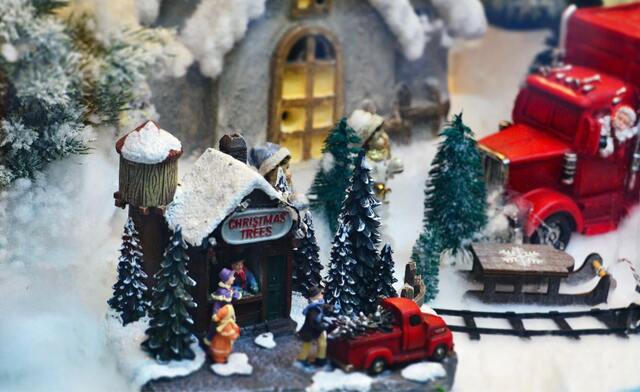How To Say “Merry Christmas” In Different Languages

Unsplash: Benjamin Lehman
Surprise! Surprise! It’s Christmas time. But is Christmas really something to be surprised about? I don’t think so. But sometimes, it can feel like that because once Christmas is here that means the New Year is right around the corner and then time transforms into a peregrine falcon flying swiftly. Swoosh. Swoosh. Swoosh.
During Christmas, we like to wish people around us a “Merry Christmas.” And we say this two-word phrase so many times that this just becomes second nature to hear everywhere. Now, did you ever wonder why we say this warm greeting and how this started?
Well, historians and linguists cannot really tell you why we say Merry Christmas. However, they do know that Merry Christmas has been used since 1534. The line was discovered in a dated letter written by Thomas Cromwell (who btw was Henry VIII's chief minister) to bishop John Fisher. The phrase also made a cameo in the 16th century English carol We Wish You a Merry Christmas. Later on, like sooo many years later, this two-word holiday phrase gained more popularity in 1843 when it made its way into Charles Dickens's A Christmas Carol. In the same year, Merry Christmas was featured on the first Christmas card ever to be sold.
Flash forward to now, we still use this happy greeting to wish friends, family, neighbors, acquaintances, pets, and more loved ones glad tidings. With that in mind, let the true spirit of Christmas enchant you and let its simple, merry sayings warm your heart. Merry Christmas.
- English: Merry Christmas (meh-ree kris-mas)
- German: Frohe Weihnachten (froh-uh vay-nak-ten)
- French: Joyeux Noël (jhwa-yuh no-el)
- Tagalog: Maligayang pasko (ma-li-ga-yang pas-ko)
- Italian: Buon Natale (bwon nah-tah-leh)
- Spanish: Feliz Navidad (fe-liz nah-vi-dad)
- Dutch: Vrolijk Kerstfeest (fro-lik kerst-feyst)
- Swedish: God Jul (good yul)
- Japanese: メリークリスマス (merī-ku-ri-su-masu)
- Danish: Glædelig Jul (gleh-de-lee yul)
- Norwegian: God Jul (goo yul)
- Polish: Wesołych Świąt (veh-so-wikh shvee-ont)
- Greek: Καλά Χριστούγεννα (kalá christoúgenna)
- Russian: С рождеством (s rozhdestvom)
- Finnish: Hyvää Joulua (hu-vah-yah yo-loo-ah)
- Mandarin Chinese: 圣诞快乐 (shèngdàn kuàilè)
- Vietnamese: Giáng Sinh vui vẻ (zang sing vuy veh)
- Brazilian Portuguese: Feliz Natal (feh-liz nah-taw)
- European Portuguese: Feliz Natal (feh-leej nah-tal)
- Czech: Veselé Vánoce (veh-seh-ley vah-no-tse)
- Korean: 메리 크리스마스! (Meli Keuliseumaseu!)
- Afrikaans: Geseënde Kersfees (ge-sehn-deh kers-fees)
- Danish: Glædelig Jul (gleh-dee-lee yul)
- Indonesian: Selamat hari Natal (se-la-mat ha-ri na-tal)
- Croatian: Sretan Božić (sreh-tan bro-zhich)
- Catalan: Bon Nadal (bon nah-dal)
- Turkish: Mutlu Noeller (mut-lu no-el-lar)


